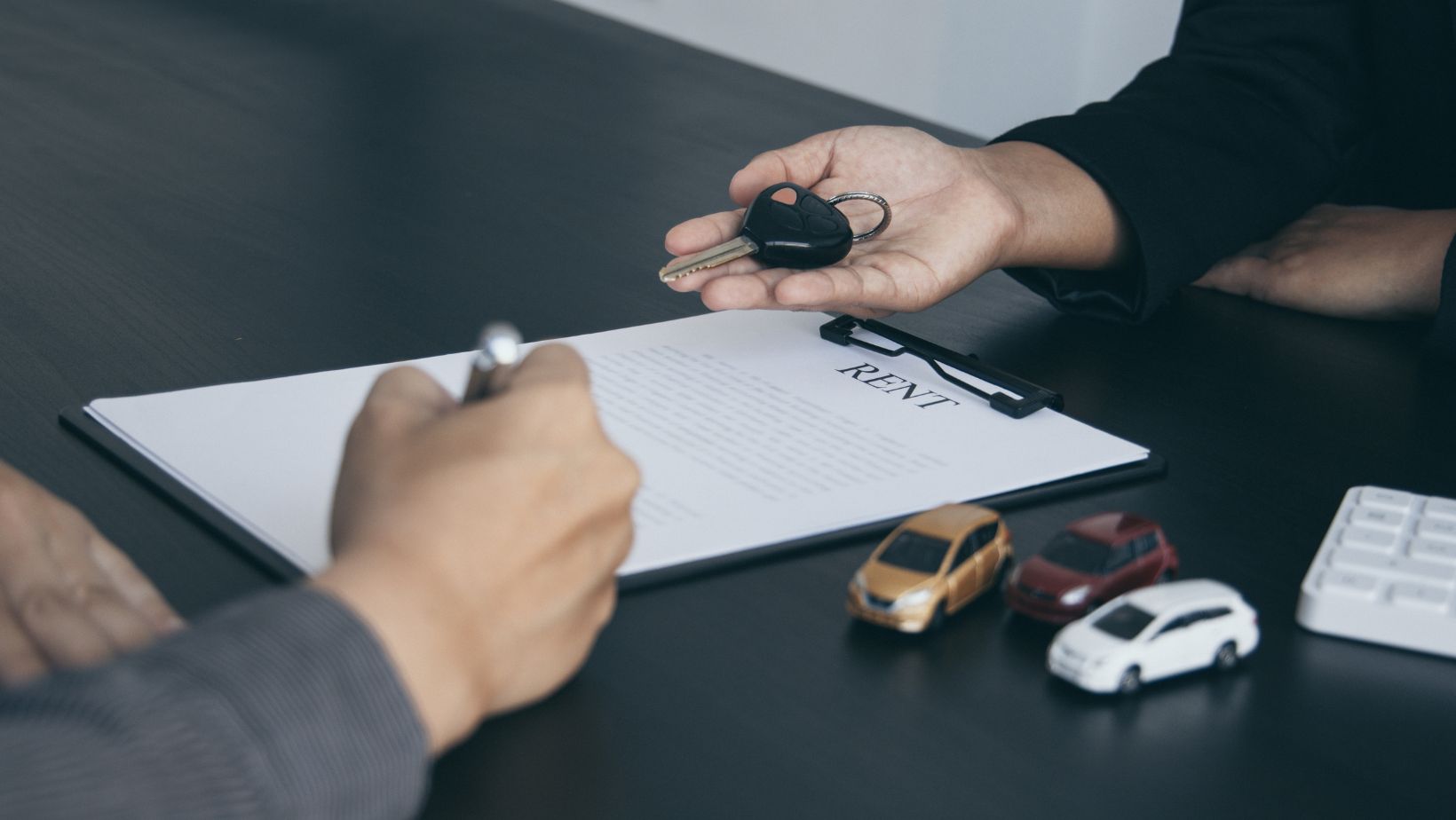The neon signs blur past, the Bellagio fountains erupt in rhythm with the music on your radio, and the Strip pulses beneath your tires like a living thing. Driving a rental car in Las Vegas can feel like cinematic freedom—until it comes to a screeching halt. One moment you’re heading to dinner, the next you’re exchanging insurance details on the side of Las Vegas Boulevard, wondering how everything unraveled so fast.
Now the glitter fades, and reality hits: the car isn’t yours. You don’t own it, but you were behind the wheel when it crashed. So who’s financially—and legally—on the hook? In Vegas, the answer is rarely straightforward. When rental agreements, insurance policies, and out-of-state laws collide, the aftermath becomes more tangled than traffic outside Caesars Palace during a prize fight weekend.
The Rental Agreement Isn’t Just Paperwork—It’s a Legal Battlefield
Most people skim their rental car agreement like it’s a software update. But that document becomes the center of the universe when there’s an accident. It outlines who’s authorized to drive, what coverage (if any) you accepted, and the fine print that could leave you fully responsible, even if you weren’t at fault.
If you lent the car to a friend who wasn’t listed, or if you were speeding, distracted, or intoxicated at the time of the wreck, the rental company could deny all coverage. Worse, they may charge you not only for the damage, but also for lost rental income while the car is out of service. Suddenly, your Las Vegas souvenir is a five-figure invoice.
When Insurance Promises Fall Short of the Vegas Lights
Think your personal auto insurance has you covered? Maybe. But maybe not. Many policies extend to rental cars, but only under certain conditions, and often with limited coverage. If you’re from another state, your insurer may not match Nevada’s liability thresholds. If you only have liability coverage at home, you’re not covered for damage to the rental car itself.
 And if your policy doesn’t extend at all? You could be facing bills for both your own vehicle damage and the other driver’s, plus medical expenses. In a city where out-of-pocket costs can pile up faster than casino chips, that’s not a gamble you want to take.
And if your policy doesn’t extend at all? You could be facing bills for both your own vehicle damage and the other driver’s, plus medical expenses. In a city where out-of-pocket costs can pile up faster than casino chips, that’s not a gamble you want to take.
The Rental Company’s “Coverage” Isn’t Always What It Seems
That waiver they offered you at the counter for an extra $30 a day? It’s not insurance—it’s a Collision Damage Waiver (CDW). It might relieve you of paying for damage to the car, but only under very specific conditions. Damage from reckless driving, unapproved drivers, or failure to file a police report could void the waiver entirely.
And if you skipped the waiver, thinking you’d “drive carefully”? That’s a great sentiment—but irrelevant if someone else crashes into you, or a valet scrapes the car, or a distracted pedestrian darts into traffic and causes a chain-reaction wreck. In Las Vegas, chaos has a habit of finding even the most careful drivers.
When You Didn’t Cause the Crash—But Still Feel the Impact
You were doing everything right. Then another driver blew through a red light, t-boned you, and sent your rental spinning into a fountain. The accident wasn’t your fault, but now you’re injured and stuck navigating three separate systems: your insurance, the other driver’s insurer, and the rental company’s damage department.
While the other driver’s insurer may eventually pay for damages, you may still have to front repair costs or deal with the rental company demanding immediate payment. That’s why documenting the crash, calling the police, and taking photos of every angle of the wreck is essential. Without proof, you may find yourself covering costs while the real at-fault party walks away clean.
The Hidden Perils of Letting Someone Else Drive
Handed your buddy the keys for a quick trip to get snacks? If they’re not on the rental agreement and they crash, you’ve just violated the contract. You’re now the one liable—not only to the rental company, but potentially to injured third parties. And your insurer may deny coverage based on that unauthorized driver clause.
Rental car companies don’t take kindly to unauthorized drivers. It doesn’t matter that they were sober, safe, or experienced—if their name isn’t on that paper, the company will almost certainly say you breached the terms. That breach could open the door to personal financial ruin.
Vegas’s Legal Landscape Adds Extra Complexity
Nevada has unique traffic laws, fault-based liability rules, and insurance minimums that may differ wildly from your home state. If you’re from Florida, Texas, or New York, your coverage might not sync with local laws. Out-of-state accidents also introduce jurisdictional headaches when it’s time to file a claim or lawsuit.
 This complexity multiplies if multiple vehicles are involved, if rideshare or commercial drivers are part of the mix, or if injuries require long-term care. Vegas may sell itself as fun and games, but in the courtroom, it’s all business. If you don’t understand how Nevada law handles fault, damages, and out-of-state drivers, you’re gambling with your rights.
This complexity multiplies if multiple vehicles are involved, if rideshare or commercial drivers are part of the mix, or if injuries require long-term care. Vegas may sell itself as fun and games, but in the courtroom, it’s all business. If you don’t understand how Nevada law handles fault, damages, and out-of-state drivers, you’re gambling with your rights.
When Rental Car Companies Are Actually at Fault
It’s rare—but not impossible—for the rental company to share blame. Maybe the brakes failed. Maybe the tires were bald. Maybe they skipped critical inspections to turn cars around faster. If your accident stemmed from a mechanical failure that the company should have known about, they may be on the hook.
Proving this isn’t easy. It takes accident reconstruction experts, access to maintenance records, and legal pressure that most individuals can’t apply alone. But if your injuries are serious and the facts suggest the vehicle itself was unsafe, you may have a strong case against the company that gave you the keys.
Why Legal Help Isn’t Optional in High-Stakes Rental Crashes
Rental car accidents on the Las Vegas Strip aren’t simple fender benders. They often involve tourists, multiple jurisdictions, complex contracts, and multiple layers of insurance. And because the Strip is a high-density, high-speed zone filled with distractions and crowds, crashes here can become high-dollar claims fast.
If you’ve been injured—or if you’re facing a lawsuit for a crash involving a rental—talking to a personal injury attorney with experience in Las Vegas traffic law isn’t just smart, it’s essential. They can untangle liability, negotiate with multiple insurers, and make sure you’re not the one paying for someone else’s recklessness. In a city where everything glitters, the legal process shouldn’t leave you in the dark.
The Janda Law Firm Accident & Injury Lawyer
Address: 2020 Wellness Wy #300A, Las Vegas, NV 89106
Phone: (702) 758-8888
URL: https://lasvegasaccidentlawyer.law/



